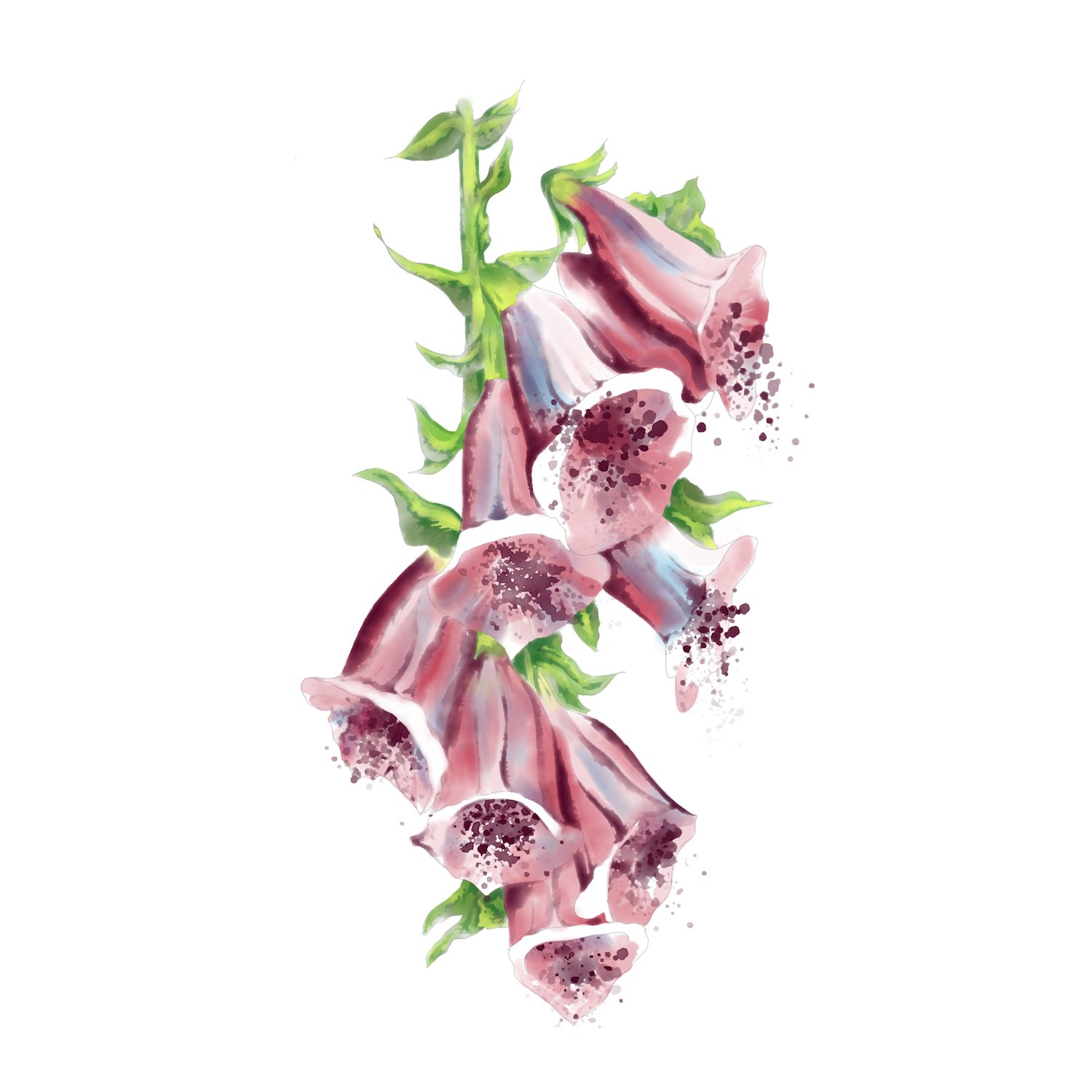“Tracing Our Roots: Digitalis” by Sonja Eagle.
Digitalis purpurea, also known as Foxglove, which Digoxin is derived from. While the plant’s medicinal properties were likely known of for centuries, they were first published about in the late 1700’s to treat congestive heart failure, known in those times as ‘dropsy.
I came across two Intima pieces in conversation with my poem, “Mercury, A Public Service Announcement” (Spring 2024 Intima; click on the title to download a copy). When I was younger, I took my body for granted. I thought medical science or pharmaceuticals would patch all my future ills. Wanting to live life to the fullest made it difficult in my busy life to do more than what was needed at that moment and then move on ... but as I age, I find my body has kept score and is less resilient.
The beautiful pink and magenta blooms in Sonja Eagle’s artwork, “Tracing Our Roots: Digitalis,” (above) reminds me that plants are often literally at the heart of prescription medicines. Digoxin, extracted from the foxglove, is still commonly used to treat congestive heart failure. While nearly half of today’s prescription drugs are plant-based, we tend to forget that Nature is the original pharmacy. The wisdom of ancient-known natural medicines is less known than the familiar trade names of drugs like Humira, Ozempic and Ritalin.
© Body As Tool by Jonathan Tijerina. Graphite on paper. Fall 2022 Intima
We often see the human body as a simple machine. Jonathan Tijerina’s “Body as Tool” sent a cultural wake-up call to me. I consider how drugs are used to treat one gear at a time, without much attention to the small font and rapid-fire monologue of warnings at the end of TV commercials. In actuality, a human body is a dynamic, intricate system of systems, an ecosystem itself of organisms interacting within the body and with the external environment in ways we only now are learning. Research continues to uncover new connections that challenge simple cause and effect treatment of symptoms. Healing the body as a system with holistic approaches is a more time-consuming and laborious process that strives to identify root causes. A combination of supplements, diet, lifestyle and prescriptions, when necessary, often leads to more sustainable outcomes.
The earth’s ecosystem we live in is changing, the plants and oceans are changing, and the problems our bodies encounter will become more challenging. More studies are discovering how mercury, microplastics, ultrafine particulate matter and other foreign substances from our made environment are entering our bloodstream. It can take a generation before the impacts of civilization’s actions can be understood in terms of impact to our bodies. Our health will rely on our caretaking of biodiversity of the earth’s ecosystem and the gifts of plants like the foxglove. —Jeanne Yu
Jeanne Yu is an emerging poet, environmentalist, engineer and mom who completed her MFA at Pacific University in January 2023. Yu’s work can be found in Rattle, Breakwater Review, Paper Dragon, Intima, The Inflectionist Review, New Letters, and the Oregon Poetry Association. Her poem, “Mercury, A Public Service Announcement,” appeared in the Spring 2024 Intima (click on the title to download a copy)



